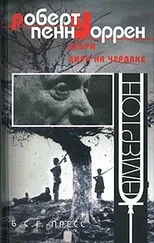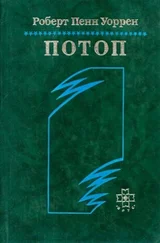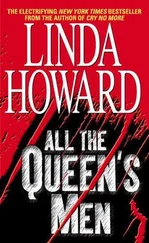Роберт Уоррен - All the king's men
Здесь есть возможность читать онлайн «Роберт Уоррен - All the king's men» весь текст электронной книги совершенно бесплатно (целиком полную версию без сокращений). В некоторых случаях можно слушать аудио, скачать через торрент в формате fb2 и присутствует краткое содержание. Жанр: Современная проза, на английском языке. Описание произведения, (предисловие) а так же отзывы посетителей доступны на портале библиотеки ЛибКат.
- Название:All the king's men
- Автор:
- Жанр:
- Год:неизвестен
- ISBN:нет данных
- Рейтинг книги:4 / 5. Голосов: 1
-
Избранное:Добавить в избранное
- Отзывы:
-
Ваша оценка:
- 80
- 1
- 2
- 3
- 4
- 5
All the king's men: краткое содержание, описание и аннотация
Предлагаем к чтению аннотацию, описание, краткое содержание или предисловие (зависит от того, что написал сам автор книги «All the king's men»). Если вы не нашли необходимую информацию о книге — напишите в комментариях, мы постараемся отыскать её.
All the king's men — читать онлайн бесплатно полную книгу (весь текст) целиком
Ниже представлен текст книги, разбитый по страницам. Система сохранения места последней прочитанной страницы, позволяет с удобством читать онлайн бесплатно книгу «All the king's men», без необходимости каждый раз заново искать на чём Вы остановились. Поставьте закладку, и сможете в любой момент перейти на страницу, на которой закончили чтение.
Интервал:
Закладка:
"A hell of a thought it is," he said, but he was grinning now, he was my pal now, he was the Friend of My Youth.
But I ignored him anyway, saying–"You can't say I don't put the cards on the table, me and the Boss, but I'm hauling out, for I catch the midnight to Memphis, where I am going to interview a medium."
"A medium?" he echoed.
"An accomplished medium maned Miss Littlepaugh, and she is going to give me word from the Other Shore that the Boss's hospital is going to have a dark, handsome, famous, son-of-a-bitch of a director named Stanton." And with that I slammed his door and was running and stumbling down the dark stairs, for it was the kind of apartment house where the bulb burns out and nobody ever puts a new one in and there is always a kiddie car left on a landing and the carpet is worn to ribbons and the air smells dankly of dogs, diapers, cabbage, old women, burnt grease, and the eternal fate of man.
I stood in the dark street and looked back at the building. The shade of a window was up and I looked in where a heavy, bald man in shirt sleeves sat at a table in what is called a "dinette" and slumped above a plate like a sack propped in a chair, while a child stood at his elbow, plucking at him, and a woman in a slack colorless dress and hair stringing down brought a steaming saucepan from the stove, for Poppa had come home late as usual with his bunion hurting, and the rent was past due and Johnnie needed shoes and Susie's report card wasn't any good and Susie stood at his elbow, plucking at him feebly, and staring at him with her imbecilic eyes and breathing through her adenoids, and the Maxfield Parrish picture was askew on the wall with its blues all having the savage tint of copper sulphate in the glaring light from the unshaded bulb hanging from the ceiling. And somewhere else in the building a dog barked, somewhere else a baby was crying in automatic gasps. And that was Life and Adam Stanton lived in the middle of it, as close as he could get to it; he snuggled up to Life, breathing the cabbage smell, stumbling on the kiddie car, bowing to the young just-married, gum-chewing, hand-holding couple in the hall, hearing through the thin partition the sounds made by the old woman who would be dead (it was cancer he had told me) before summer, pacing the frayed green carpet among the books and broken-down chairs. He snuggled up to Life, to keep warm perhaps, for he didn't have any life of his own–just the office, the knife, the monastic room. Or perhaps he didn't snuggle to keep warm. Perhaps he leaned over Life with his hand on the pulse, watching from the deep-set, abstract, blue clinical eyes, slightly shadowed, leaning ready to pop in the pill, pour the potion, apply the knife. Perhaps he had to be close in order to keep a reason for the things he did. To make the things he did be themselves Life. And not merely a delightful exercise of technical skill which man had been able to achieve because he, of all the animals, had a fine thumb.
Which is nonsense, for whatever you live is Life. That is something to remember when you meet the old classmate who says, "Well, now on our last expedition up the Congo–" or the one who says, "Gee, I got the sweetest little wife and three of the swellest kids ever–" You must remember it when you sit in hotel lobbies or lean over bars to talk to the bartender or stand in a dark street at night, in early March, and stare into a lighted window. And remember little Susie in there has adenoids and the bread is probably burned, and turn up the street, for the time has come to hand me down that walking cane, for I got to catch that midnight train, for all my sin is taken away. For whatever you live is Life.
As I turned away, there was the wild burst of music from up in the building, louder than the baby's cry, shaking the mortar out of the old brick work. It was Adam's piano.
I caught the train for Memphis, stayed three days, had my séance with Miss Littlepaugh, and returned. With some photostats and an affidavit in my brief case.
Upon my return I found the call in my box. It was Anne's number, then Anne's voice on the wire, and, as always, the little leap and plunk in my heart like a frog jumping into a lily pool. With the ripples spreading round.
It was her voice saying she had to see me. I told her that was easy, she could see me all the rest of her life. But she ignored that little joke, as no doubt it deserved, and said for me to meet her right away. "At the Crescent Cove," I suggested, and she agreed. The Crescent Cove was Slade's place.
I was there first, and had a drink with Slade himself in the midst of soft lights and sweet music and the gleam of chromium, and looked at Slade's yellow-ivory bullet head and expensive tailoring and at the reigning blond at the cash register, and remembered wistfully the morning long ago in Prohibition, when in the back room of his fly-bitten speakeasy Slade, with hair on his head than and not a dime in his pocket, had refused to fall in with Duffy's attempt to force beer on Cousin Willie from the country, who was, it turned out, Willie Stark, and who wanted orange pop. That had fixed Slade for ever. So now I had my drink, and looking at him, marveled how little is required for a man to be lost or saved.
And I looked up into the mirror of the bar and saw Anne Stanton come in the door. Or rather, her image come through the image of the door. For the moment I did not turn to face the reality. Instead, I looked at the image which hung there in the glass like a recollection caught in the ice of the mind–you have seen, in winter in the clear ice of a frozen stream, some clean bright gold and red leaf embedded to make you think suddenly of the time when all the bright gold and red leaves had been on the trees like a party and the sunshine had poured down over them as though it would never stop. But it wasn't a recollection, it was Anne Stanton herself, who stood there in the cool room of the looking glass, above the bar barricade of bright bottles and siphons across some distance of blue carpet, a girl–well, not exactly a girl any more, a young woman about five-feet-four with the trimmest pair of nervous ankles and smallish hips which, however, looked as round as though they had been turned on a lathe, and a waist just the width to make you wonder if you could span it with your hand, and all of this done up in a swatch of gray flannel which pretended to a severe mannish cut but actually did nothing but scream for attention to some very unmannish arrangements within.
She was standing there, not quite ready to start patting the blue carpet with an impatient toe, turning her smooth, cool face (under a light-blue felt hat) slowly from one side to the other to survey the room. I caught the flash of blue in her eyes in the mirror. When she was just behind me, she said, "Jack."
I didn't look round. "Slade," I said, "this strange woman keeps following me round, and I thought you ran a respectable place. What the hell are you going to do about it?"
Slade had swung round to look at the strange woman, whose face was all at once chalk-white and whose eyes were uttering sparks like a couple of arc lights. "Lady," Slade said, "now look here, lady–"
Then the lady suddenly overcame the paralysis which had frozen her tongue and the blood hit her cheeks. "Jack Burden!" she said, "if you don't–"
"She knows your name," Slade said.
I turned around to face the reality which was not something caught in the ice of the mind but was something now flushed, feline, lethal, and electric and about to blow a fuse. "Well, I declare," I said, "if it isn't my fiancée! Say, Slade, I want you to meet Anne Stanton. We're going to get married."
"Gee," Slade said, his pan as dead as something in the sink next morning, "I'm glad ter–"
"We're getting married in twenty-hundred-and-fifty," I said. "It will be a June wedding, with–"
Читать дальшеИнтервал:
Закладка:
Похожие книги на «All the king's men»
Представляем Вашему вниманию похожие книги на «All the king's men» списком для выбора. Мы отобрали схожую по названию и смыслу литературу в надежде предоставить читателям больше вариантов отыскать новые, интересные, ещё непрочитанные произведения.
Обсуждение, отзывы о книге «All the king's men» и просто собственные мнения читателей. Оставьте ваши комментарии, напишите, что Вы думаете о произведении, его смысле или главных героях. Укажите что конкретно понравилось, а что нет, и почему Вы так считаете.





![Роберт Уоррен - Рассказы [Компиляция]](/books/419993/robert-uorren-rasskazy-kompilyaciya-thumb.webp)


